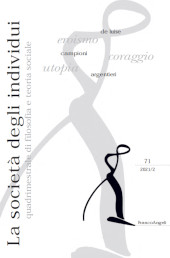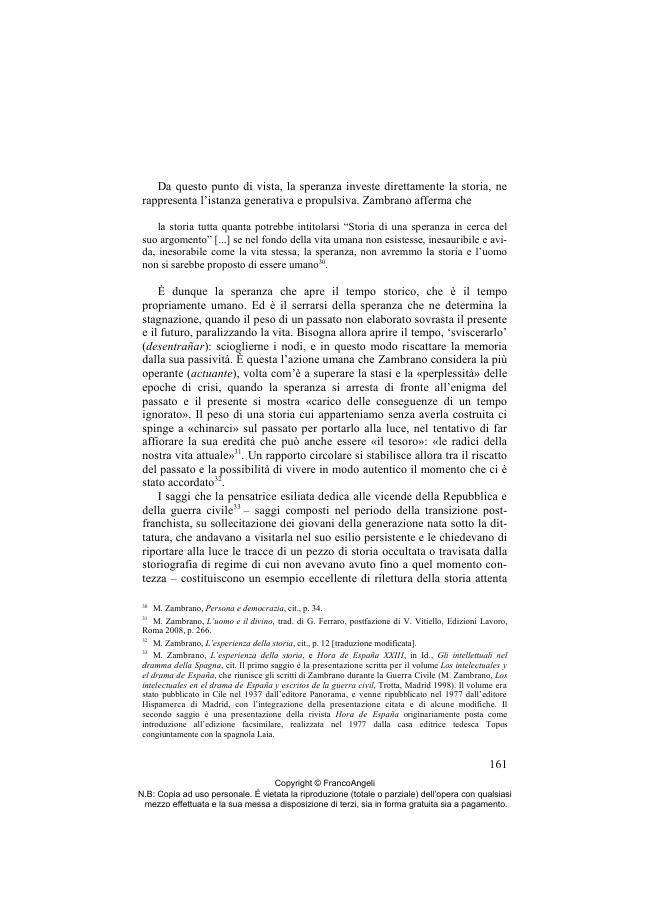I non luoghi della storia : María Zambrano, Ernst Bloch, Walter Benjamin e l'utopia
153-168 p.
According to the diagnosis that Zambrano proposes in the Agony of Europe, utopia derives from the idealism constitutive of European history and is the basis of it's violence; but utopia is also a display of the principle of hope that the Spanish thinker considers as a manifestation of freedom. Consequently, Zambrano affirms, in agreement with Bloch, the need and responsibility to support hope in desperate times. Utopia, as an opening to the beyond/other of history, is the lens through which the exiled thinker revisits, in the 70s, the events of the Spanish Republic and the Civil War. There, she offers an antihistoricist reading of the past which, recalling Benjamin, intends to redeem the elements contrasting with the order of the winners, and to release it's unexpressed potential. [Publisher's text].
Forma parte de
Società degli individui : 71, 2, 2021-
Artículos del mismo número (disponibles individualmente)
-
Información
Código DOI: 10.3280/LAS2021-071012
ISSN: 1972-5752
KEYWORDS
- Utopia, María Zambrano, Walter Benjamin, history of Europe, hope



